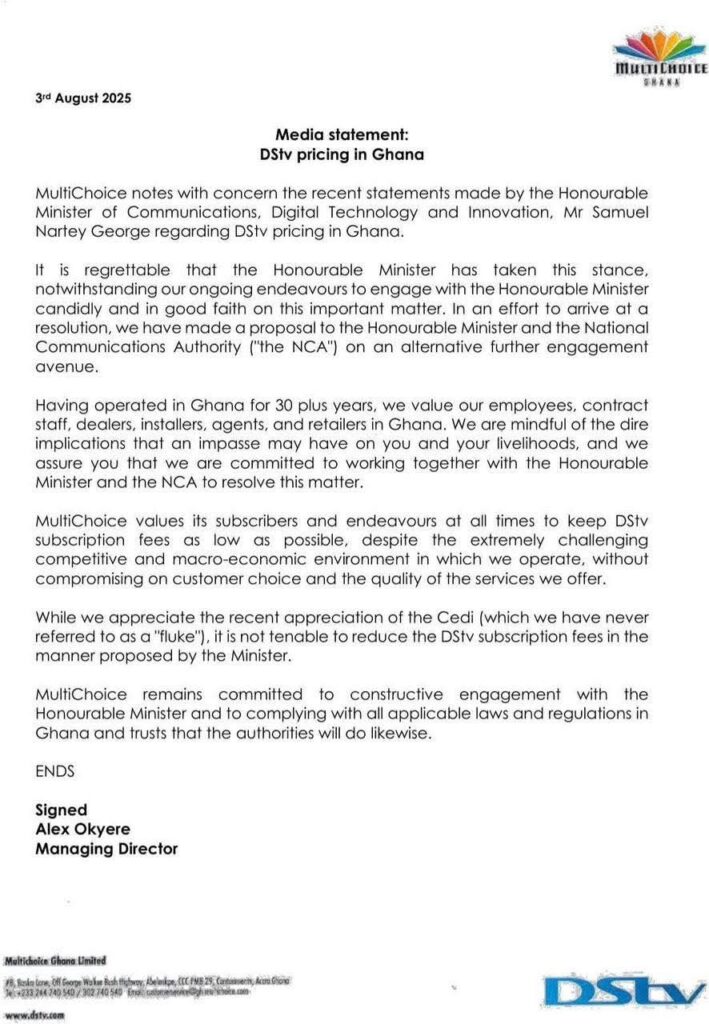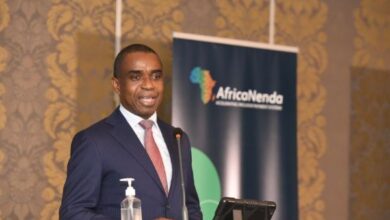Tensions Rise Between MultiChoice and Minister Over DSTV Pricing: Consumers, Investors Watch Closely

A growing standoff between MultiChoice Ghana and the Ministry of Communications, Digital Technology and Innovation over DSTV subscription pricing has sparked concern among consumers and raised fresh questions about investor confidence in Ghana’s digital and media services industry.
In a statement issued on August 3, MultiChoice Ghana expressed dismay over recent remarks by sector Minister Mr. Samuel Nartey George, who has publicly called for a 30% reduction in DSTV subscription fees following recent gains in the cedi. The company says it is disappointed by the Minister’s stance, which comes despite ongoing dialogue between both parties and the submission of a formal proposal to the Ministry and the National Communications Authority (NCA) for further engagement.
The pay-TV operator warned that the current impasse could have significant consequences for its operations and for the thousands of people whose livelihoods depend on the DSTV value chain—including installers, agents, and retailers across the country.
“While we appreciate the recent appreciation of the cedi… it is not tenable to reduce DSTV subscription fees in the manner proposed by the Minister,” the statement read, adding that price reductions could compromise customer choice and service quality.
Consumers Left in the Middle
At the heart of the debate is the affordability of pay-TV in Ghana, a country where consumers are increasingly sensitive to utility costs. Many subscribers have welcomed the Minister’s intervention, citing economic hardship and the perceived mismatch between the strengthening local currency and stagnant pricing.
However, MultiChoice argues that maintaining service quality amid inflationary pressures, forex volatility, and a competitive market remains challenging. A sudden reduction in prices, it warns, could limit content offerings and reduce the viability of its operations in Ghana.
Investor Caution and Policy Uncertainty
Industry observers note that the standoff could ripple into the investment climate, particularly within the telecommunications and media sectors. “A clash between the regulator and one of the market’s dominant players sends mixed signals to potential investors,” said a digital economy analyst who asked not to be named.
“With Ghana pushing for more investment in ICT infrastructure, digital services, and content creation, uncertainty around pricing policy and regulatory intervention may erode investor confidence.”
MultiChoice reiterated its commitment to constructive dialogue and regulatory compliance, while also urging a balanced approach that supports the sustainability of pay-TV operations in Ghana.
As the debate continues, stakeholders are calling for a broader consultation that considers the views of consumers, industry players, and economic planners to reach a long-term solution that balances affordability with industry viability.





